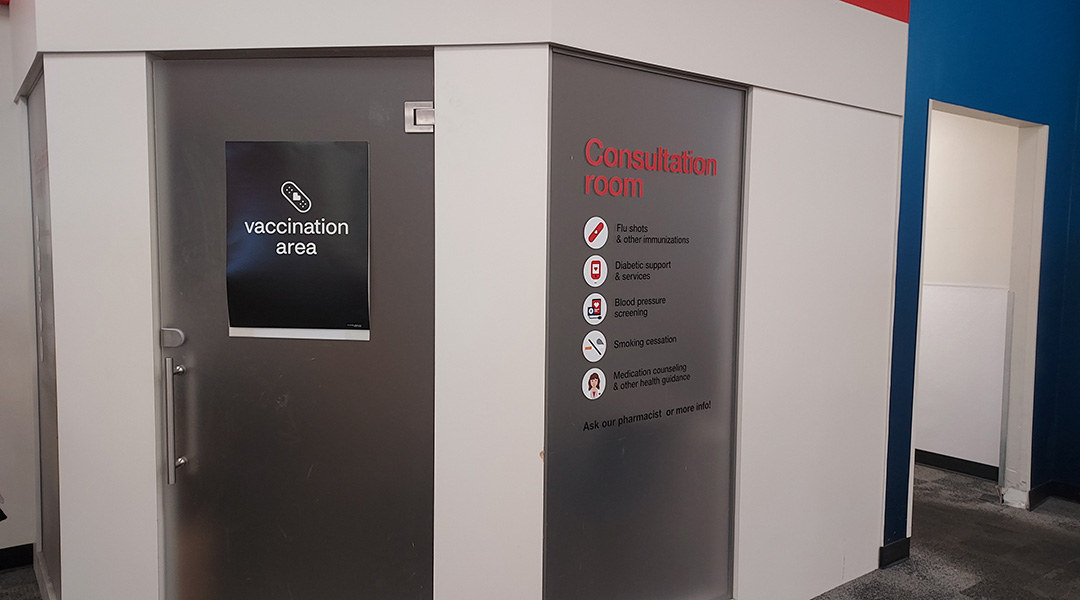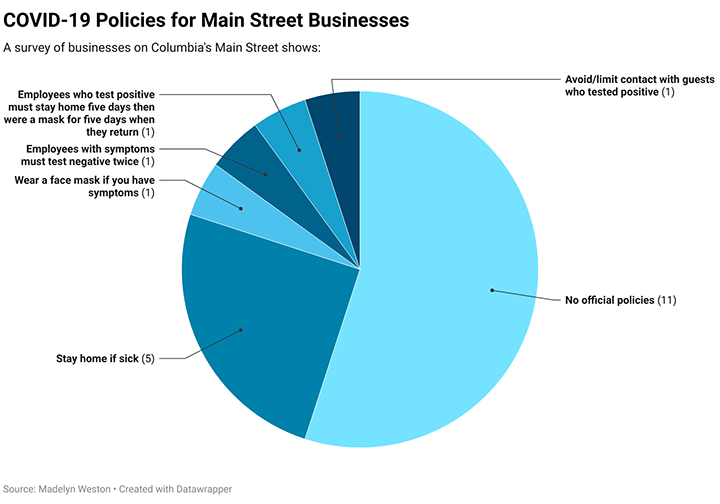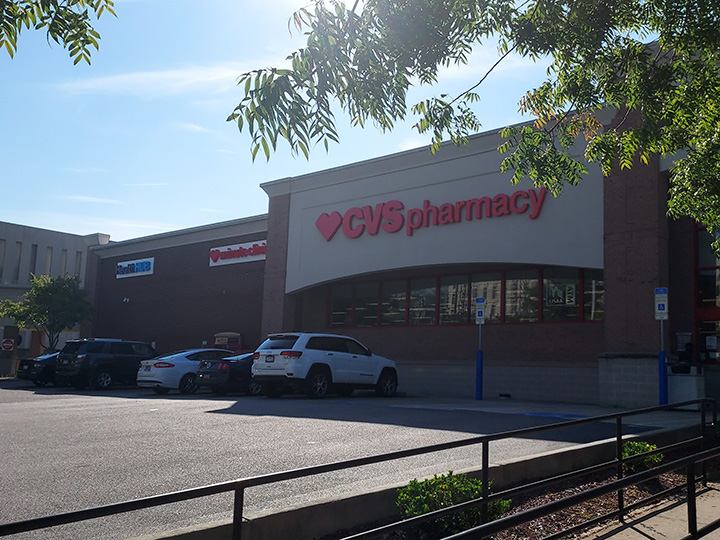CVS Pharmacy on Assembly Street has a small vaccination room. (Photo by Madelyn Weston/Carolina News and Reporter)
COVID infections are up, anecdotally, but many Columbia businesses haven’t returned to requiring masks.
That might not be such a bad thing.
Vaccines, and infections, have reduced the severity of the virus for most people – along with overall hospitalizations and the death rate. And an updated COVID-19 vaccine was approved by the U.S. Food and Drug Administration last week.
That might be why masking or social distancing policies right now are more relaxed for businesses on downtown Columbia’s Main Street. Only 11 of 20 businesses surveyed this week have no official policies.
“I think as a society, no one’s really worried about it anymore,” said Zachary Jordan, the front of the house manager of The Grand. “Most people look at COVID like it’s the flu.”
But The Grand is still cautious about preventing the spread of illness whether it’s COVID-19 or a common cold, Jordan said. If an employee has any symptoms, managers ask them to stay home until they feel better.
Aside from following guidelines from the Centers for Disease Control and Prevention, there is not a mask policy at The Grand. If there is another increase in COVID-19 infections, the policy may change, Jordan said.
“As much as life has gone back to normal, we have to stay vigilant because we don’t know what it could turn into,” Jordan said.
No current infection numbers are available from the state Department of Health and Environmental Control.
State data shows 62.4% of eligible South Carolinians have had at least one COVID-19 vaccine dose.
“Vaccines save lives,” said Dr. Brent Powers, chief medical officer at Lexington Medical Center. “We saw with the initial COVID series, the people that got the vaccine against COVID, they still contracted COVID, but they were nowhere near as sick.”
The vaccine helps protect people from getting the virus, and if they are infected, it reduces the severity of the illness, Powers said.
Because vaccinations give the immune system a “head start,” when patients get sick, their bodies already know how to handle the infection.
“We are nowhere near the severity of illness or the volume of illness that requires hospitalization,” Powers said of the current infection rate compared to the height of the pandemic, when COVID patients accounted for 50% of Lexington Medical’s beds.
Now, 3% to 5% of the hospital’s beds are taken by COVID patients.
Powers said COVID-19 eventually will be similar to the common cold, whose symptoms are mild enough that people ignore having a runny nose, cough and scratchy eyes.
Preventing the spread of the virus also reduces the variants, Powers said.
Infections become more severe when the body cannot defend itself faster than the virus replicates.
Having an updated vaccination is important because coronavirus mutates every time it transfers to a new host, he said. Those who are vaccinated are less likely to contract it, which prevents the spread.
“That’s why we have to do yearly flu shots,” Powers said. “And so we will be stepping into a rhythm where we do yearly COVID shots.”
The updated vaccination is manufactured by ModernaTX Inc. and Pfizer Inc. to protect against the newest Omicron variant.
The FDA advises that people 5 years old and older receive a single dose if their last vaccination was two months ago or longer. Children 6 months of age through 4 years old can receive up to three doses depending on their vaccination status, the date of the last dose and the manufacturer of the updated dose.
“Patients who received their booster are essentially getting the most recent copy of the virus DNA that we can essentially assimilate into a vaccine,” Power said. “So they’re receiving maximum protection.”
The updated mRNA COVID-19 vaccination has similar side effects to previous doses. Patients may have a low grade fever or aching for one to two days. In rare cases, there may be an allergic reaction, Powers said.
Joe Stokes is a pharmacist at CVS on Assembly Street. He estimates the store has received about 40-50 vaccinations from suppliers.
Many patients prefer walk-ins over an appointment, and at least 10 vaccinations have been given so far, Stokes said. Appointments are slowly increasing.
He said a majority of people choose to get their flu shot and COVID-19 vaccination in the same visit so they don’t have to return. But, sometimes, others separate them because of potential side effects.
It’s not just masking or social distancing policies that have changed,
Those infected at the beginning of the pandemic were required to isolate seven to 10 days, based on CDC guidelines. Businesses and schools moved to virtual options. And people stood 6 feet apart.
The CDC now recommends that if someone has symptoms, they should isolate until they test negative. If they test positive, they should stay home for five days while avoiding contact with others. Day Zero starts the day symptoms began or when an asymptomatic person tested positive.
Isolation can end when the individual is fever-free for 24 hours without medication after a five-day period. They should wear a mask through day 10.
The new vaccine is available for free at CVS and Walgreens pharmacies.




